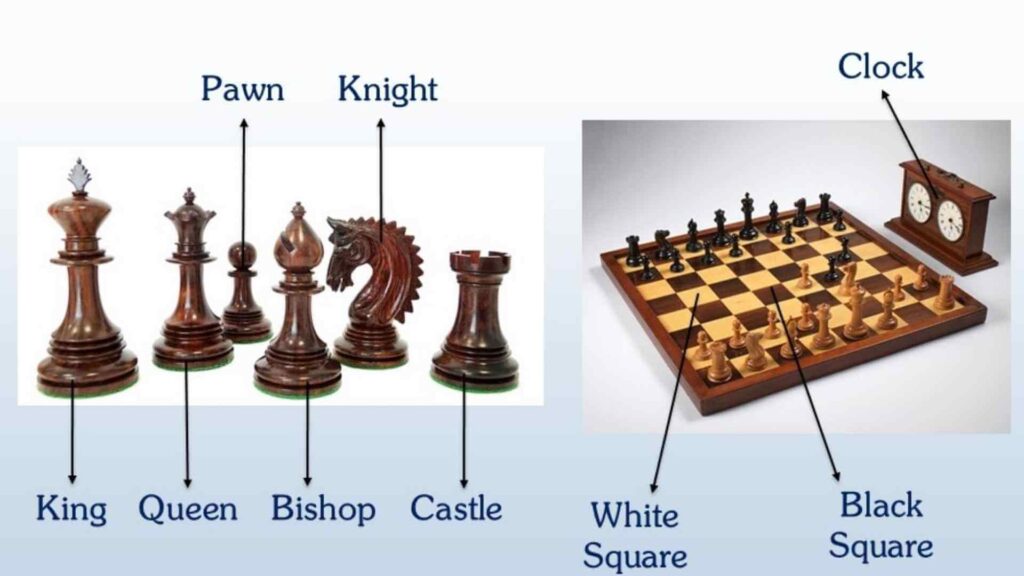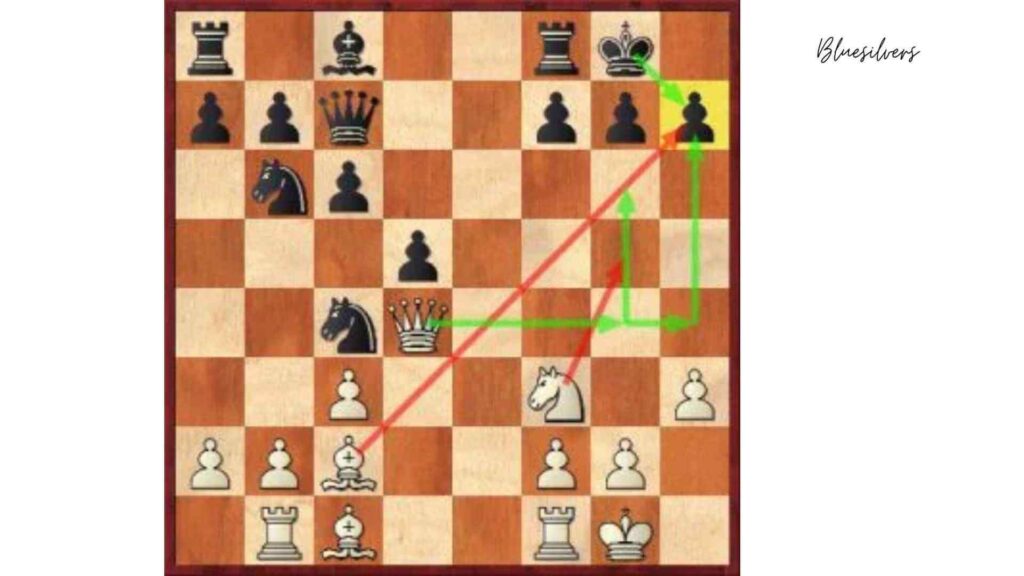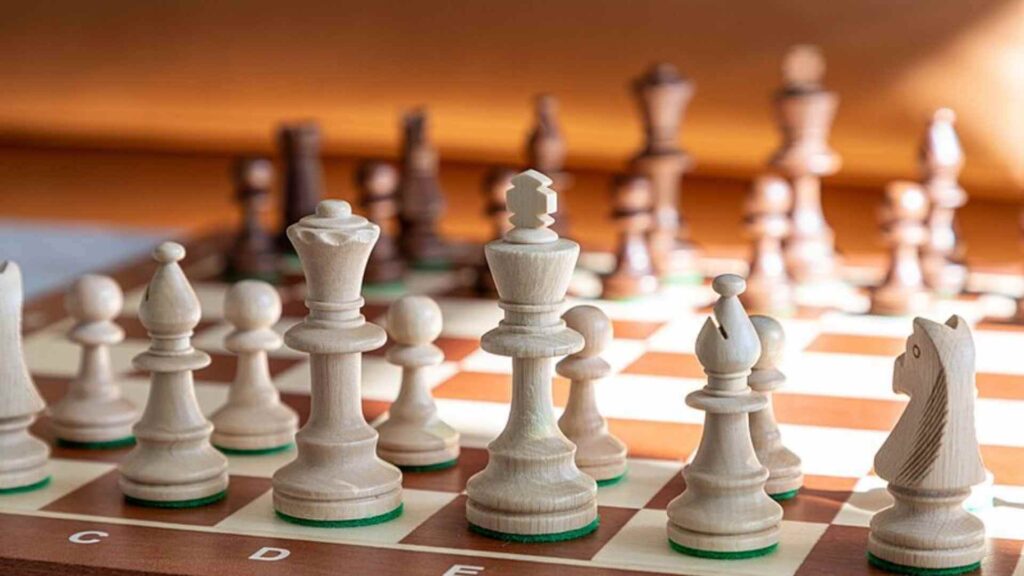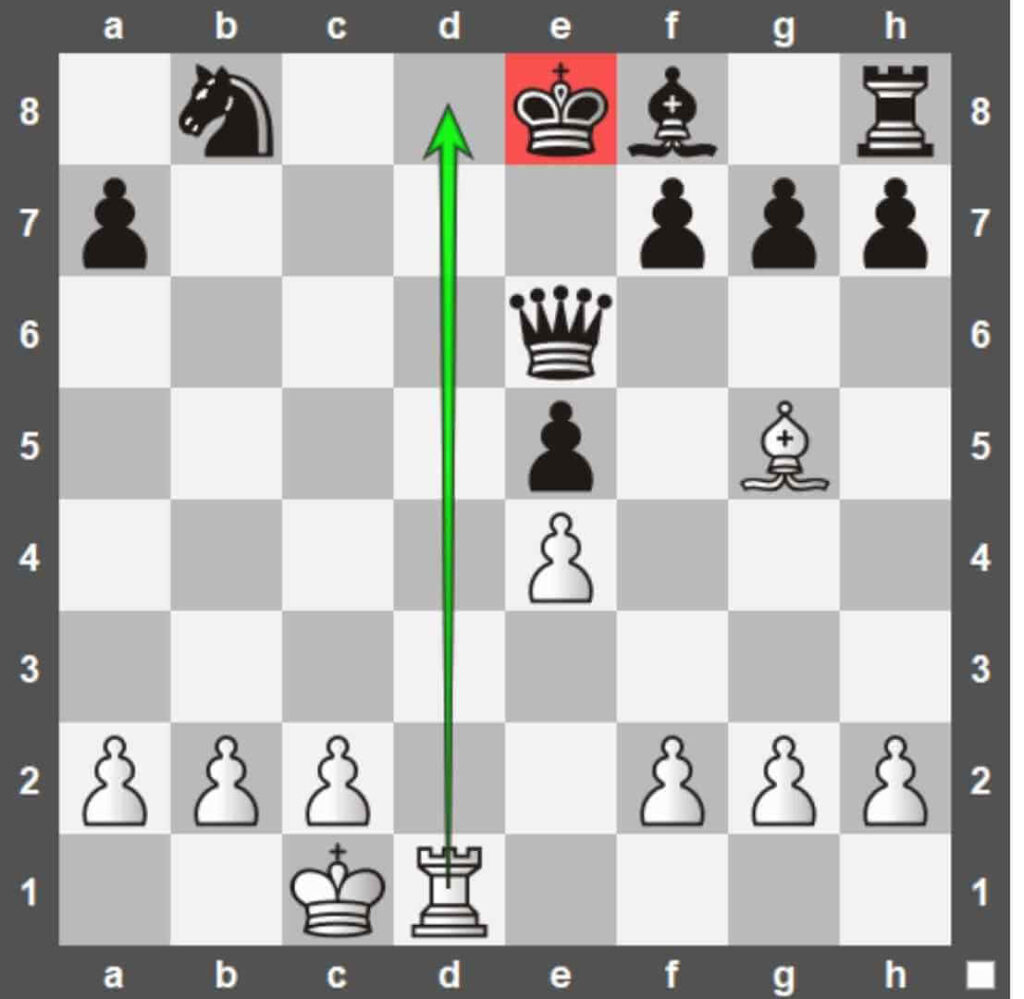Introduction to Chess Vocabulary
Chess has a rich vocabulary that players must understand to navigate the game effectively. Whether you are a beginner or an advanced player, knowing these terms will enhance your understanding of chess strategies, tactics, and rules. This guide provides a comprehensive overview of essential chess vocabulary.
Basic Chess Terms
- Board: The 8×8 checkered surface where the game is played.
- Rank: Horizontal rows labeled 1 to 8.
- File: Vertical columns labeled ‘a’ to ‘h.’
- Square: A single space on the chessboard, identified by its file and rank (e.g., e4).
- Piece: Refers to any of the 32 playing pieces, including pawns, knights, bishops, rooks, queens, and kings.
- Move: The action of advancing or repositioning a piece.
- Turn: When a player is allowed to make a move.
Game Phases
- Opening: The initial stage of the game focused on piece development and control of the board.
- Middlegame: The phase following the opening where most tactics and strategies are executed.
- Endgame: The final stage of the game when few pieces remain, and the focus shifts to checkmate strategies.
Key Chess Moves and Techniques
- Check: A move that directly attacks the opponent’s king.
- Checkmate: A position where the opponent’s king is under attack and cannot escape capture, ending the game.
- Stalemate: A situation where a player has no legal moves, and the king is not in check, resulting in a draw.
- Castling: A special move involving the king and a rook to improve king safety and rook activity.
- En Passant: A unique pawn capture that occurs when a pawn moves two squares forward and lands beside an opponent’s pawn.
- Promotion: When a pawn reaches the opponent’s back rank, it can be promoted to any piece (usually a queen).
Tactics and Strategies
- Pin: A tactic where a piece cannot move without exposing a more valuable piece behind it.
- Fork: A move that attacks two or more pieces simultaneously.
- Skewer: Similar to a pin but targets a valuable piece in front of a less valuable piece.
- Discovered Attack: An attack revealed when one piece moves, uncovering another attack.
- Sacrifice: Deliberately giving up a piece to gain a strategic advantage.
- Zugzwang: A position where any move a player makes weakens their position.
Piece-Specific Terms
- King: The most important piece; must be protected at all costs.
- Queen: The most powerful piece, capable of moving in any direction.
- Rook: Moves horizontally or vertically across any number of squares.
- Bishop: Moves diagonally across any number of squares.
- Knight: Moves in an ‘L’ shape and can jump over other pieces.
- Pawn: The smallest piece, but vital for controlling the board and promotions.
Common Game Outcomes
- Win: Achieved through checkmate or opponent resignation.
- Draw: A tied result, which can occur by stalemate, repetition of moves, or insufficient material to checkmate.
- Resignation: Voluntary forfeiture of the game by a player.
Chess Notation
- Algebraic Notation: The system used to record moves based on square coordinates (e.g., Nf3 for knight moving to f3).
- Annotation Symbols:
- ! (Good move)
- !! (Excellent move)
- ? (Mistake)
- ?? (Blunder)
- !? (Interesting move)
Special Terms in Competitive Chess
- Elo Rating: A numerical measure of a player’s skill level.
- Grandmaster (GM): The highest title awarded by the International Chess Federation (FIDE).
- Time Control: The time limit for completing moves in a game.
- Blitz Chess: Fast-paced games with shorter time controls.
- Bullet Chess: Extremely fast games, often with only 1-2 minutes per player.
Modern Chess Tools
- Chess Engines: Programs like Stockfish that analyze positions and suggest moves.
- Online Platforms: Websites like Chess.com and Lichess for playing, practicing, and studying chess.
- Puzzles: Exercises designed to improve tactics and calculations.
Conclusion
Mastering chess vocabulary is essential for understanding and improving at the game. These terms form the foundation for learning strategies, analyzing games, and communicating with other players. Whether you are a beginner or an experienced player, building familiarity with chess terminology will enhance your appreciation and performance in this timeless game.




